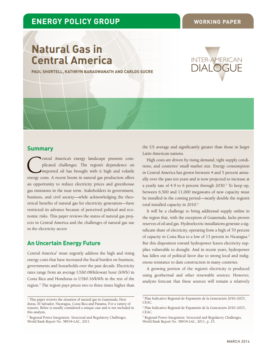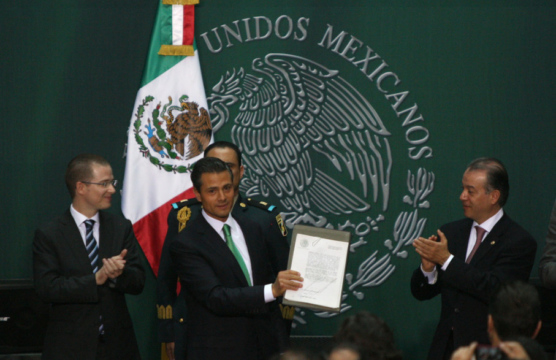
Natural Gas in Central America
Natural gas has the potential to reduce Central America’s high energy costs and mitigate its dependence on imported oil.
This post is also available in: Español
While Mexico’s oil and gas reform has stolen the limelight both at home and abroad, the electricity reform is arguably more critical to the country’s economic growth, trade and fiscal budget. High power generation costs, deficient infrastructure, and barriers to competition are leading Mexico on a path toward soaring industrial electricity tariffs and unsustainable energy subsidies. In a sweeping overhaul of the country’s framework for the electricity and hydrocarbons sectors, Mexico’s Congress in December 2013 approved constitutional reforms that would increase private participation in generation, transmission and distribution and restructure electricity institutions in an effort to promote investment in new energy sources, particularly natural gas and renewable energy.
In the long term, this vital reform should reduce electricity prices for the key industrial sector, alleviate operational and budgetary constraints for CFE, and move Mexico toward a cleaner energy matrix . But while the government has taken important steps toward establishing the right energy framework, much work remains to be done -- and the many potential challenges and uncertainties mean that the reform is unlikely to bear fruit in the short term. The Mexican government, having promised that the reform will lead to lower electricity prices within two short years, must set more realistic expectations to maintain public support over the long term.
This report was prepared by the Inter-American Dialogue’s program on Energy, Climate Change and Extractive Industries, which seeks to improve understanding and communication on energy policy issues in Latin America through research, public events and roundtable discussions. By producing balanced analysis and convening policymakers, corporate leaders and industry experts, the program informs and shapes policies that promote investment while encouraging economically, socially and environmentally responsible development of natural resources.
Natural gas has the potential to reduce Central America’s high energy costs and mitigate its dependence on imported oil.
The results of Mexico’s energy reforms may fall well short of government promises and public expectations.
The electrification of the transportation sector is crucial to reducing carbon emissions and tackling global climate change.

 Video
Video
